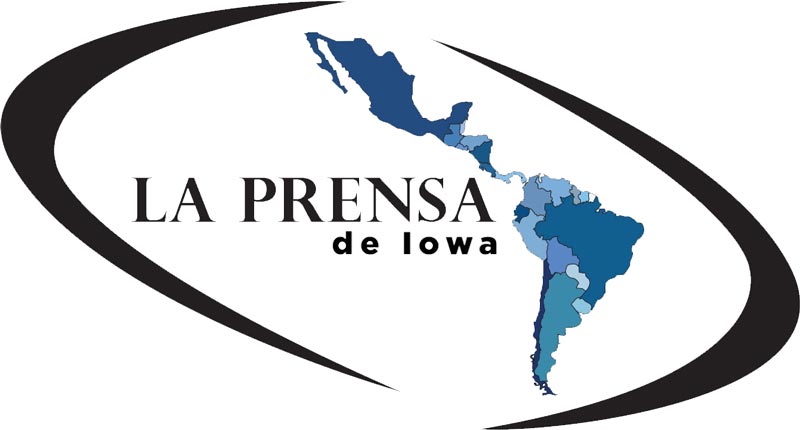CONSEJOS PARA VIAJEROS INMIGRANTES EN EL 2022
/CAPTION GOES HERE
Sonia Parras Konrad
Abogada de Inmigración
Comienza el año nuevo y empezamos a hacer planes para estar con nuestros seres queridos. Muchos de nosotros estamos divididos entre dos países y dos mundos. Este articulo ofrece consejos y pasos a seguir para conseguir de una manera segura si es posible, la deseada reunión familiar.
1. ¿Puedo “sacar una visa de turista” para mis padres?
La visa de conocida como B2 o de placer o paseo, es el documento que necesita la mayoría de los turistas extranjeros para viajar a Estados Unidos. Los pasos para solicitarla y obtenerla son sencillos si se siguen en orden.
El proceso para solicitar la visa de turista americana se inicia completando el formulario DS-160, para ello es necesario tener a mano el pasaporte, el itinerario de viaje si ya se tiene y las fechas de los últimos cinco viajes a EE.UU. En algunos casos, también es posible que se solicite información de viajes internacionales realizados en los últimos cinco años.
¡Cuidado con el fraude!
Las respuestas en el DS-160 deben ser completas y verdaderas ya que la falta o falsa información pueden dar lugar a que no le aprueben la visa, e incluso a obtenerla en el futuro por considerar que las mentiras equivalen a un fraude de ley.
Una vez que se tiene completado el formulario DS-160 y se ha imprimido la hoja de confirmación, el siguiente paso es proceder al pago y cerrar la fecha de la entrevista en el Consulado o Embajada. El pago de la cuota de la visa que es con carácter general, es de $160 dólares los que no son recuperables si la visa no es aprobada. Una vez hecho el pago se habilita el calendario para la cita de la entrevista.
¿Puedo hacer algo en caso de emergencia?
Si. En caso de emergencia como muerte de un familiar en EE.UU., enfermedad grave que debe tratarse en ese país o negocio inesperado con un cliente o proveedor se debe contactar directamente con el consulado para adelantar la cita. Nunca se considera urgencia un asunto de turismo.
¿Cual es la documentación esencial que debo de llevar a la entrevista?
Pasaporte vigente que expire al menos 6 meses más tarde de lo que se considera como fecha final del viaje que se quiere realizar, salvo excepciones para algunos países.
Hoja de confirmación solicitud DS-160 impresa con código de barras
En los países en los que se pagó por banco, recibo de pago original.
En algunos países, como por ejemplo Chile, una foto en papel.
Depende de las circunstancias del solicitante de la visa, pero teniendo en cuenta que el objetivo es probar que el solicitante desea ingresar a EE.UU., con carácter temporal para hacer turismo, visitar a un amigo o familiar, ir de compras o recibir tratamiento médico.
· Debe probar que tiene fondos económicos suficientes para el viaje y lazos económicos, sociales y familiares fuertes en su país y, por lo tanto, no hay riesgo de que se quede en EE.UU. si la visa es aprobada.
· Ejemplos de esos documentos podrían ser: pasaportes anteriores, copia original o certificada del acta de nacimiento, estado de cuentas bancarias, documentos que acrediten el pago de impuestos, diplomas y títulos universitarios, cédulas profesionales, credenciales, recibos de nóminas, cartas oficiales de los departamentos de Recursos Humanos de las empresas, etc.
· Si se tiene una carta de invitación, también se puede mostrar como documento de apoyo.
· Si solicitan visa para recibir tratamiento médico, deberán probar que tienen recursos económicos para pagarlo y que dicho tratamiento no está disponible en sus países
· Cambio: A partir del 24 de enero de 2020, las embarazadas deberán probar que no tienen intención de dar a luz en EE.UU. y que las razones de su viaje son otras.
El mejor consejo: Los consejos para la entrevista son no enfadarse con el oficial consular y no mentir ni presentar documentación falsa.
1. ¿Si soy residente permanente, que debo de tener en cuanta cuando viaje a ver a mi familia a mi país de origen?
a. Su pasaporte debe de estar vigente mas de seis meses a la fecha de regreso
b. Tarjeta de residente con mas de seis meses
c. Si cometió crímenes no salga hasta consultar con un abogado de inmigración
2. ¿Puedo salir de los Estados Unidos con un permiso de viaje de inmigración?
a. En general solo algunas categorías de inmigrantes tienen derecho a solicitar permisos temporales y restringidos para viajar al extranjero.
b. Recuerden que, si salen después de haber entrado sin permiso y vivido en el país por mas de 180 días y regresan sin permiso o autorización, tendrán un castigo permanente que no se elimina con una exención I-601-A.
3. ¿Tengo DACA o TPS, puedo salir a pasar unas vacaciones a mi país?
Si usted está protegido de la deportación bajo los programas de Acción Diferida (DACA) o Estatus de Protección Temporal (TPS) o tiene un trámite pendiente ante el servicio de inmigración, preste atención. No se otorgan permiso de visita a su país de origen por vacaciones.
USCIS emitió políticas nuevas sobre permisos de viaje. Ahora debemos de presentar pruebas de circunstancias urgentes o relacionadas con el ámbito laboral o de educación para poder viajar con un permiso (parole). Las pruebas varían dependiendo de la situación, pero pueden ir desde records médicos y cartas de los doctores solicitando su presencia urgente hasta cartas de defunción o pruebas y escritos de necesidad de viaje por negocios tales como traspasos de tierra, apariciones en juicio de custodia de niños etc.
El tiempo de procesamiento de aprobación de un premiso de viaje dependerá de la razón presentada. Si es una emergencia, USCIS local podrá procesar el permiso en 24 horas. De lo contrario, entra en una vía normal y pueden tardar de 4-7 meses.
Para permisos de viaje efectuados después de agosto del 2020 no hay oportunidades de interpretar el parole como una admisión legal que le permita solicitar la residencia permanente dentro del país.
4. No tengo estatus legal en EEUU y quiero viajar dentro del país, ¿que debo de saber?
1. El viajar en avión es arriesgado porque tiene que ir a aeropuertos. ICE/CBP esta hospedado también en los aeropuertos. Ustedes pueden ser referidos por TSA (oficiales de seguridad) a agentes de inmigración. En algunos aeropuertos fronterizos como Texas, San Diego, etc hay control de inmigración antes de pasar seguridad.
2. El viajar en coche es un riesgo y siempre es aconsejable que una persona con licencia de conducir sea el conductor en todo momento. También el coche deberá de estar registrado y asegurado.
3. El acercarse a zonas fronterizas es un riesgo porque quizás si se pierde o se distrae podrá pasar sin querer un punto de control de aduanas e inmigración. Saldrá sin problemas, pero al regresar lo pondrán en deportación.
__________________
La Abogada Sonia Parras Konrad está especializada en Derecho de Inmigración y Familia. Para solicitar una cita al (515) 255-931 2925 Ingersoll Ave, 3rd. Fl. Des Moines Iowa 50312.
Translation
TIPS FOR IMMIGRANT TRAVELERS IN 2022
Sonia Parras Konrad
Immigration Lawyer
The new year begins and we begin to make plans to be with our loved ones. Many of us are torn between two countries and two worlds. This article offers advice and steps to follow in order to safely achieve, if possible, the desired family reunion.
1. Can I “get a tourist visa” for my parents?
The visa known as B2 or pleasure or tour, is the document that most foreign tourists need to travel to the United States. The steps to request and obtain it are simple if they are followed in order.
The process to request the American tourist visa begins by completing the DS-160 form, for this it is necessary to have the passport at hand, the travel itinerary if you already have it and the dates of the last five trips to the United States. In some cases, information on international trips made in the last five years may also be requested.
Beware of fraud!
The answers on the DS-160 must be complete and true since missing or false information can lead to your visa not being approved, and even obtaining it in the future, considering that lies are equivalent to fraud.
Once the DS-160 form is completed and the confirmation page has been printed, the next step is to proceed with the payment and close the date of the interview at the Consulate or Embassy. The payment of the visa fee, which is generally $160 dollars, which is not recoverable if the visa is not approved. Once the payment is made, the calendar is enabled for the appointment of the interview.
Can I do something in an emergency?
Yes. In an emergency such as the death of a family member in the US, a serious illness that must be treated in that country, or unexpected business with a client or supplier, the consulate should be contacted directly to advance the appointment. A tourism issue is never considered urgent.
What is the essential documentation that I must bring to the interview?
Valid passport that expires at least 6 months later than what is considered the end date of the trip you want to make, with exceptions for some countries.
• DS-160 request confirmation sheet printed with barcode
• In countries where payment was made by bank, original payment receipt.
• In some countries, such as Chile, a photo on paper.
• It depends on the circumstances of the visa applicant, but bearing in mind that the objective is to prove that the applicant wishes to enter the US, temporarily for tourism, visiting a friend or relative, shopping or receiving medical treatment.
• You must prove that you have sufficient economic funds for the trip and strong economic, social and family ties in your country and, therefore, there is no risk that you will stay in the US if the visa is approved.
• Examples of these documents could be: previous passports, original or certified copy of the birth certificate, bank account statement, documents proving the payment of taxes, diplomas and university degrees, professional licenses, credentials, pay stubs, official letters of the Human Resources departments of companies, etc.
• If you have an invitation letter, it can also be shown as a supporting document.
• If they apply for a visa to receive medical treatment, they must prove that they have the financial resources to pay for it and that said treatment is not available in their countries.
• Change: As of January 24, 2020, pregnant women must prove that they do not intend to give birth in the US and that the reasons for their trip are other.
Best advice: The tips for the interview are not to get angry with the consular officer and not to lie or present false documentation.
2. If I am a permanent resident, what should I take into account when I travel to see my family in my country of origin?
to. Your passport must be valid for more than six months on the date of return
b. Resident card with more than six months
c. If you committed crimes, do not leave until you consult with an immigration attorney.
3. Can I leave the United States with an immigration travel permit?
to. In general, only certain categories of immigrants are entitled to apply for temporary and restricted permits to travel abroad.
b. Remember that if you leave after having entered without permission and lived in the country for more than 180 days and return without permission or authorization, you will have a permanent penalty that is not eliminated with an I-601-A waiver.
4. Do I have DACA or TPS, can I go on vacation to my country?
If you are protected from deportation under the Deferred Action (DACA) or Temporary Protected Status (TPS) programs or have pending immigration proceedings, pay attention. Permission to visit your country of origin for vacations is not granted.
USCIS issued new policies on travel permits. Now we must present proof of urgent or work-related or educational circumstances in order to travel with a parole. The evidence varies depending on the situation, but can range from medical records and letters from doctors requesting your urgent presence to death letters or evidence and writings of the need to travel for business such as land transfers, child custody trial appearances etc.
The processing time for approval of a travel permit will depend on the reason presented. If it is an emergency, local USCIS will be able to process the permit within 24 hours. Otherwise, it enters a normal pathway and may take 4-7 months.
For travel permits made after August 2020, there are no opportunities to interpret the parole as a legal admission that allows you to apply for permanent residence within the country.
5. I do not have legal status in the US and I want to travel within the country, what should I know?
1. Air travel is risky because you have to go to airports. ICE/CBP is also hosted at the airports. You may be referred by TSA (security officers) to immigration agents. In some border airports such as Texas, San Diego, etc. there is immigration control before going through security.
2. Traveling by car is a risk and it is always advisable that a person with a driver's license be the driver at all times. Also the car must be registered and insured.
3. Approaching border areas is a risk because perhaps if you get lost or distracted you may inadvertently pass through a customs and immigration checkpoint. He will leave without problems, but when he returns they will put him in deportation.
__________________
Lawyer Sonia Parras Konrad is specialized in Immigration and Family Law. To request an appointment at (515) 255-931 2925 Ingersoll Ave, 3rd. Fl Des Moines Iowa 50312.







































